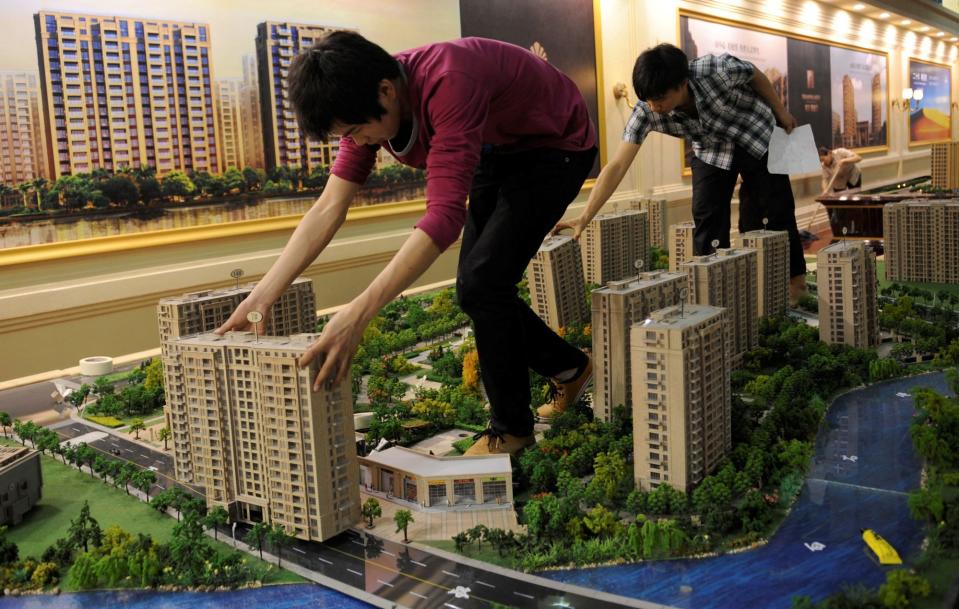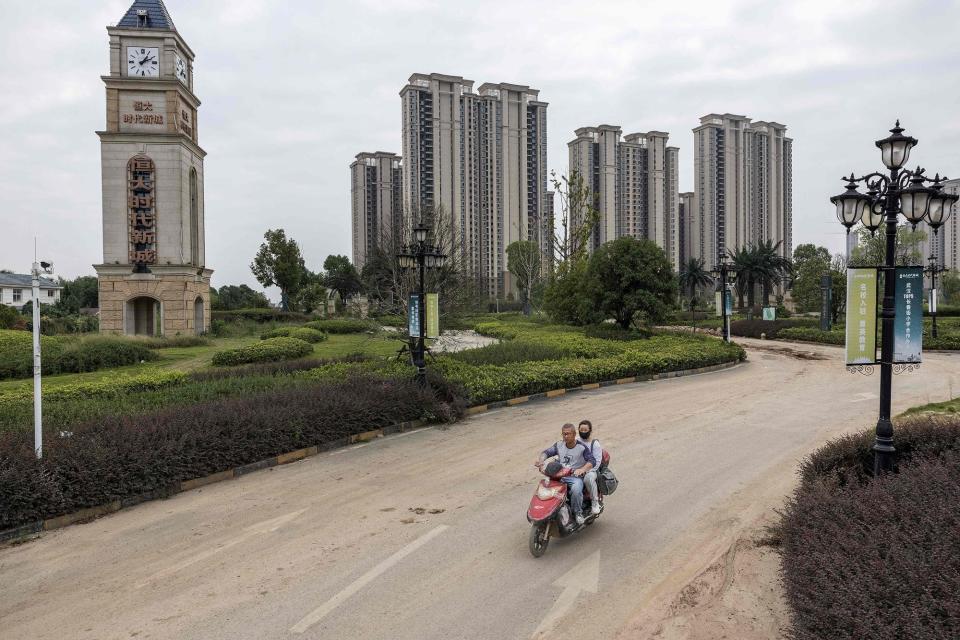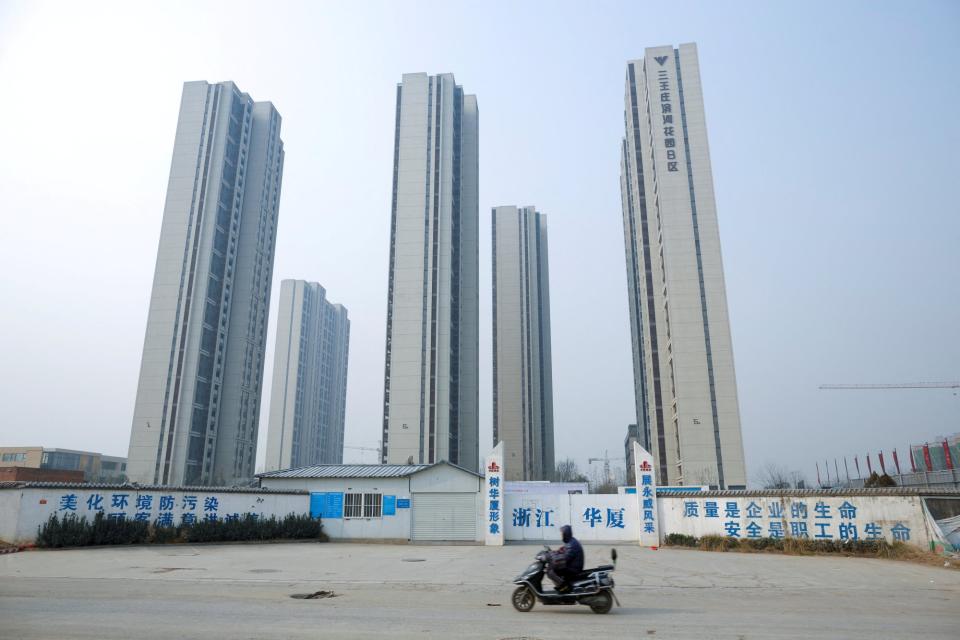China property: 'underwhelming' stimulus to fall short of refloating market amid sunken buyer confidence, analysts say
Scott Xiong of Wuhan, the capital city of China's central Hubei province, is racked with disappointment after a potential buyer pulled the plug on a deal to buy his home last week. Now the 30-year-old PhD student is considering cutting another 50,000 yuan (US$6,900) from his asking price, which is already close to his original floor price.
Meanwhile, 840km away in Shanghai, Li Huiting is feeling buyer's remorse after she bought a second-hand home with her husband in the city's Pudong New Area in April. Prices then had already dropped by around 1 million yuan compared with a year earlier, but now the 26-year-old teacher thinks "prices might go lower if I waited for a while".
Both stories suggest that a stimulus plan unveiled a week ago - including more than US$41 billion for local governments to buy unsold homes - may not be sufficient to refloat China's massive property market, which ran aground more than three years ago. Certainly little has changed for potential buyers, who at this point have been conditioned to expect falling prices and to eye developers' promises about delivery dates with a jaundiced eye.
Do you have questions about the biggest topics and trends from around the world? Get the answers with SCMP Knowledge, our new platform of curated content with explainers, FAQs, analyses and infographics brought to you by our award-winning team.
"This is a buyer-led market, where I must offer more benefits to lure buyers," Xiong lamented. In fact, he worries that the new policies reinforce the idea that the market is in a downturn, leading buyers to delay their decisions in case prices plummet further or even more supportive measures rain down.
The property market once accounted for about a quarter of China's economy but has been high and dry since August 2020 when China's "three red lines" policy shut the industry's weakest borrowers out of the capital markets.
To bail it out, authorities on this month reduced down-payment ratios, cut mortgage interest rates and introduced the 300 billion yuan (US$41.4 billion) relending facility, which allows local state-owned enterprises to buy unsold homes they can then offer as affordable housing. They will also be able to buy back undeveloped land from developers.
The policies are widely viewed as evidence that Beijing is finally on the right track to fix the country's property sector. Anecdotally, the moves have had an effect, as homebuyers in some of the biggest cities rushed to sales offices to scout for deals. For example, viewing requests in Shenzhen on the weekend after the announcement were three times what they were a week earlier, according to property agent Centaline.
However, official data shows China had 391 million square metres of unsold homes as of end-April, the most since 2016. Unfinished or delayed pre-sold homes numbered 20 million at the end of 2022, which would cost an estimated 3.2 trillion yuan to complete, according to an analysis by Japanese investment bank Nomura.
"Will the new funding be enough to return the property market to its glory days? Almost certainly not," Harry Murphy Cruise, an economist at Moody's Analytics, said in a note on Monday. The relending funding is "a drop in the ocean" given the scale of unsold stock, he added.
Specifically, the funding could purchase up to 15 per cent of the inventory in tier-2 cities, but only at a deep discount, which is "rather underwhelming" and "will be unlikely to make a notable difference to nationwide housing inventory", Bank of America analysts said on Monday.

Employees set up model apartments for a real estate sale in Hangzhou, Zhejiang province, in May 2012. Photo: Reuters alt=Employees set up model apartments for a real estate sale in Hangzhou, Zhejiang province, in May 2012. Photo: Reuters>
More than 1 trillion yuan of capital injection would be needed to reduce the saleable inventory and stabilise prices, Goldman Sachs analysts said in a May 13 report looking at 80 cities. The process could take at least nine months based on past down-cycle run rates, they said.
Simply on a practical basis, some unfinished projects will need a lot of attention, according to Liu Huanhuan, a general manager with Huapai Auction in Shanghai, which specialises in distressed assets. One 17-storey residential building she knows of in eastern Jiangsu province, for example, now sits in the middle of a pond that formed as water collected on the deserted construction site.
"It will be a long process to revitalise such distressed properties," she said.
"The risks brought by the current stocks should not be ignored," said Lu Ting, chief China economist at Nomura, who added that incoming inventory is limited as new project starts by property developers are at the lowest level since the global financial crisis.
Meanwhile, homebuyer confidence may take as long to rebuild as absorbing the excess inventory - or longer.
As lack of trust in delivery promises deters buyers from newly built homes, a gap has widened between the primary and secondary markets. New home sales fell by 12 per cent last year, whereas sales of secondary homes increased by 17 per cent, according to estimates by S&P Global.
"This outperformance shows that homebuyers still have an appetite to buy residences," S&P analysts led by Esther Liu wrote in a note. "They just don't want to pay upfront for a new home from a developer that may lack the resources to finish and deliver the unit. Buying housing on the secondary market removes that uncertainty."
Buying up inventory, though widely discussed, is secondary to the more important work of ensuring delivery of pre-sold homes, Nomura's Lu said. "Rebuilding homebuyers' confidence in the presale system is the precondition for a revival of the housing market," he said.
It will not be easy, according to economists, analysts and industry players, who cite broader economic expectations, fundamental demographic changes and the changing consumption behaviour of prospective buyers.
"The stimulus policies are encouraging for stabilising the market, but it is not enough to change the expectations of homebuyers," said Zhu Ning, a professor of finance at the Shanghai Advanced Institute of Finance at Shanghai Jiao Tong University and author of China's Guaranteed Bubble.

A housing complex by Chinese property developer China Evergrande is seen in Wuhan, in China's central Hubei province, on September 28, 2023. Photo: AFP alt=A housing complex by Chinese property developer China Evergrande is seen in Wuhan, in China's central Hubei province, on September 28, 2023. Photo: AFP>
"Unless there is speculative demand driven by strong expectations that prices will rise, buyers, except those buying for their own use, will not buy at this level of prices, which are still high if compared with their income."
Despite more than 70 measures to ease property distress over the first four months of 2024, home transactions have continued to slide. Sales by the top 100 developers in that period dropped 44.9 per cent year on year to 312.2 billion yuan, according to data from China Real Estate Information Corporation.
Prices of existing homes in March were down 23.9 per cent from a high in July 2021, according to data compiled by the Beike Research Institute based on a sample of 50 large cities.
"The myth that home prices will only rise has been broken over the past three years," said Zhu, who as early as 2016 called the property market a "bubble".
Back then, developers including China Evergrande Group and Country Garden Holdings were in a building frenzy driven by a nationwide "shantytown" redevelopment policy that aimed to raze and replace subpar housing across China. The policy offered subsidies for homeowners in lower-tier cities to buy new homes, and helped push prices to record highs, benefiting both homeowners and speculative investors.
Now, few expect quick improvement. "It will be a long time before we see home prices rise to levels as high as in 2017 and 2018, unless there is dramatic inflation or quantitative easing," Zhu said.
"The United States took six to seven years to get out of the woods of an economic recession brought about by a property crisis, while Japan took 20 years. And we are somewhere in between."
The craze for homebuying has passed, replaced by households selling their homes in favour of renting, cutting their mortgage exposure amid the risk of decreased income in the slow economy.
Meanwhile, household savings have surged, growing by 16.67 trillion yuan or nearly 14 per cent in 2023, compared with 2022, according to the People's Bank of China.
Linda Chen, a former teacher, now marketer, sold her 753 sq ft home in the eastern metropolis of Hangzhou at a discount of about 300,000 yuan in December, moving into a rented unit of similar size with her husband.
For years she had paid about 9,000 yuan a month for her mortgage, and was still paying 7,000 despite several rounds of mortgage rate cuts by the authorities last year. "The house had become a huge burden for us, and we knew we must sell no matter what the price was," Chen said.

A man rides a scooter past apartment high-rises under construction in Zhengzhou, Henan province, China, on January 19, 2019. Photo: Reuters alt=A man rides a scooter past apartment high-rises under construction in Zhengzhou, Henan province, China, on January 19, 2019. Photo: Reuters>
"The [government's] countercyclical measures are not effective any more," said Raymond Yeung, chief economist at ANZ Research, adding that the link between rate cuts and rising property sales has been severed since 2022.
"The shock from the pandemic, diminishing economic optimism and the lack of confidence in real estate as a store of wealth have affected the prospects of property investment."
Declines in marriage registrations, the birth rate and rural-urban migration represent major structural headwinds for demand, and are unlikely to reverse in at least the next five to 10 years, analysts from BNP Paribas warned in a May 21 report.
"We believe the current demand-supply dynamics make it very difficult to see a substantial rebound in home purchases to a level that would help to quickly digest market inventories," they said.
"Personal experience has a great impact on one's risk appetite and investment decisions," Zhu said, adding that the past few years have taught young Chinese two lessons. First, young couples saw the risks of home delivery as they got nothing even after emptying "six wallets" - their own plus those of their parents. Second, they learned that even those lucky enough to get their homes could find themselves out of work and unable to afford loans.
"They once regretted not buying a home earlier when they saw their friends earning [from appreciation]," he said. "But now they are like, 'Thank God I didn't buy'."
This article originally appeared in the South China Morning Post (SCMP), the most authoritative voice reporting on China and Asia for more than a century. For more SCMP stories, please explore the SCMP app or visit the SCMP's Facebook and Twitter pages. Copyright © 2024 South China Morning Post Publishers Ltd. All rights reserved.
Copyright (c) 2024. South China Morning Post Publishers Ltd. All rights reserved.

 Yahoo Finance
Yahoo Finance 